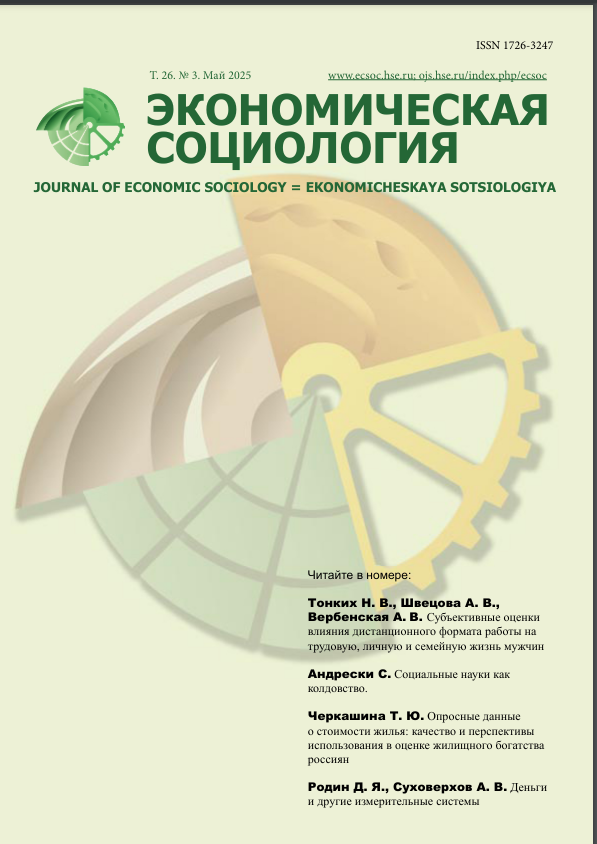«Нестандарт как норма»: что скрывают нестандартные формы потребления1
Abstract
In contemporary society, consumption functions as a fundamental element of everyday life and a key mechanism for identity construction. In periods of instability and different socio-economic shocks, nonstandard forms of consumption tend to move to the center of attention. V. Radaev identifies five nonstandard consumption forms: three are characterised as emotionally loaded (panic, impulsive, and compulsive consumption) and two as socially oriented (status and ethical consumption). Based on data from a nationally representative survey of the adult population in Russia (May 2024, N = 6,000), the author uses descriptive statistics and regression analysis to examine the prevalence of non-standard consumption patterns and their correlation with decision-making styles, socio-demographic characteristics, life satisfaction, and financial consequences. A key finding reveals that nearly half of all respondents engage in at least one form of nonstandard consumption, with emotionally loaded forms being the most widespread. This finding points to emerging consumer trends and may serve as an indicator of increasing social tension. The book review consists of two parts: the first section outlines the book’s primary content, theoretical and methodological foundations and systematises the empirical findings; the second part evaluates the book’s relevance and contribution, discusses its methodological limitations, and offers our addition to the typology of nonstandard consumption forms based on existing literature.













